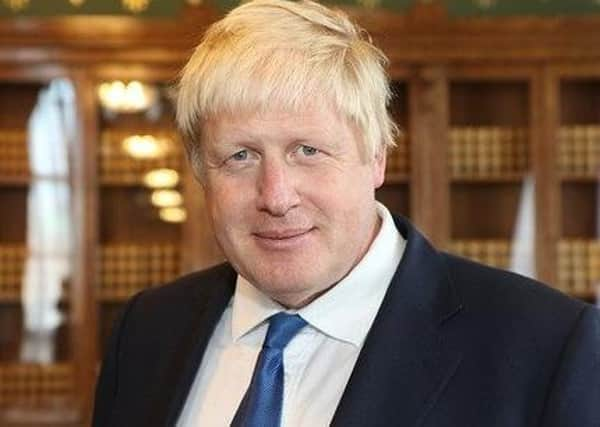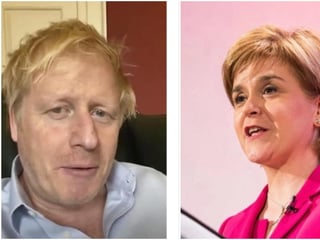Despite Boris Johnson’s diagnosis, Covid-19 is no ‘equal opportunity’ disease – Kezia Dugdale


Monday’s BBC Six O’clock news carried the most extraordinary insight into the Intensive Care Unit of London’s University College Hospital. Eight NHS doctors and nurses to a bed, head to toe in protective plastic working in symmetry to turn a heavily sedated and incubated patient, knowing they would breathe easier lying on their front. They worked with calm rhythmic efficiency but when the consultant turned to answer the interviewer’s question, no bedside manner could hide the haunted look in his eyes. The same haunted look we saw in Dominic Raab’s eyes just two hours later as he confirmed to the nation that the Prime Minister Boris Johnson had been moved into a similar unit in a different London hospital.
For weeks now, our news bulletins have led with a graph showing a rising infection rate and death count. Each day we remark on how it compares to the day before, almost immunised to the reality that each digit in the graph represents a life and a story. Now there’s one life at the heart of that rising graph that YouGov tell us 99 per cent of UK adults recognise and it’s the Prime Minister.
Advertisement
Hide AdAdvertisement
Hide AdThe man charged with leading us through these horrors. We don’t need a live video update to see that all his bombast and bravado has been stripped away. He’s suddenly very human. His fragility now making him very relatable. Waiting at home is his heavily pregnant partner who is reportedly suffering from coronavirus, although with milder symptoms. It could be any house in the land but it just happens to have the most famous address. This story, which would sound far-fetched in a schmaltzy Hollywood blockbuster, hammers home that this disease could hit any one of us.
No-one is invincible
Prior to the news that he was in hospital, Boris Johnson’s personal ratings had never been higher. Likewise, the government could take comfort from polling showing that 70 per cent of the public think that it is doing a good job. This matters not just from the perspective of morale, but because the more we trust those making critical decisions about our lives and livelihoods at the moment, the more likely we are to accept and follow the decisions they make, and in turn the more likely we are to recover well from this health and economic crisis.
The Prime Minister’s diagnosis shows us that no-one is invincible, but let’s not kid ourselves that this disease is somehow an equal opportunity infector. The poorest people are least able to protect themselves both physically and economically. Whether that’s the privilege of working from home or the resilience to withstand the sweeping redundancies and systemic change that is set to come.
This was never a three-week crisis and it won’t be a three-month lockdown. The recession will be deep and felt for years to come. Some industries like travel and tourism may never be the same again. The downward graphs of a year’s time will contain many more numbers and personal stories of a different kind of pain.
Disease exacerbates inequality
Right now trust in government and our leaders is high, in my view because we trust them in moments of crisis to do the right things in order to keep people alive in the most primal and fundamental sense.
Trust in politicians has been historically low since the 1930s but it’s worth remembering that these measures often assess the degree to which people believe their leaders will do what they promised rather than an assessment of how they will respond in a crisis.
I worry that trust will crumble when the judgment calls our leaders have to make are less “life and death” and more matter of who the winners and losers will be as the country resets itself.
This disease exacerbates pre-existing inequalities, not just of wealth but also of power and agency.
Advertisement
Hide AdAdvertisement
Hide AdWe’re rooting for the Prime Minister because he’s now a defining image of the reality that we’re all in this together, but the truth is that will be the case not just for the hours and days ahead, but for years to come.
Kezia Dugdale is director of the John Smith Centre
